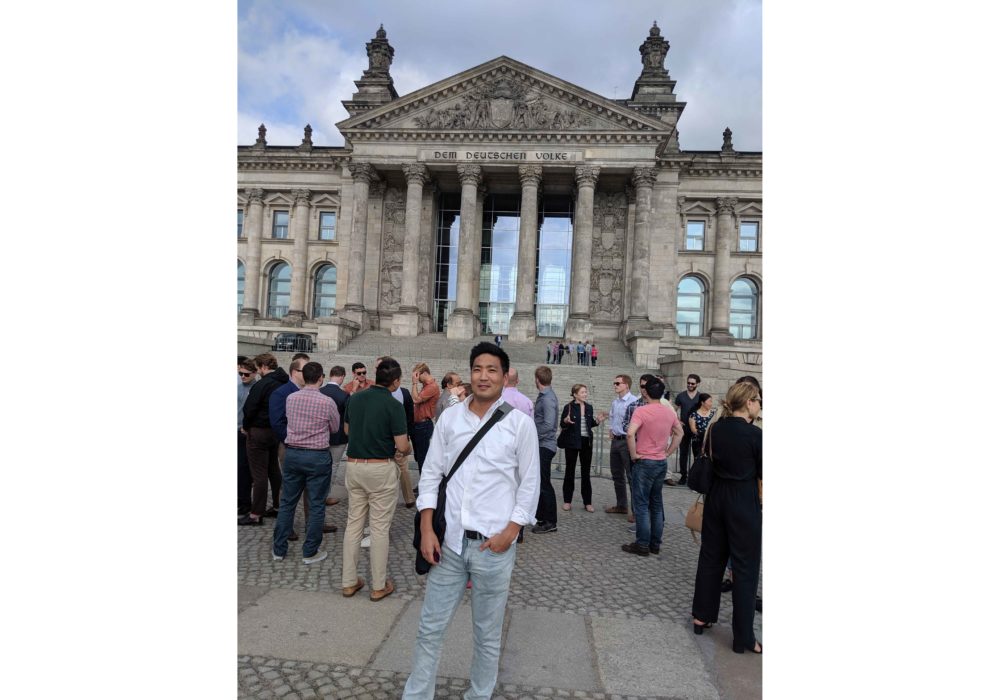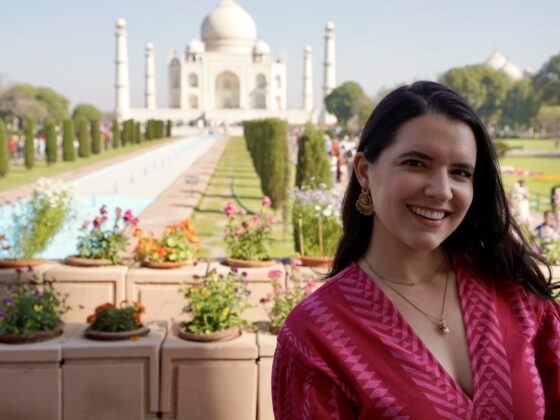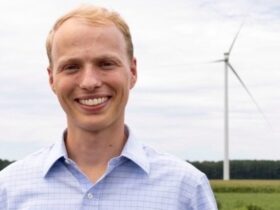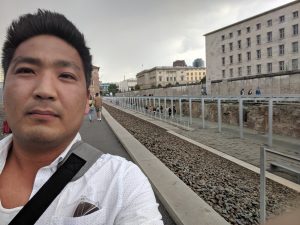 By Tom Kim
By Tom Kim
On any short-term journey, there’s always the risk of a foreigner’s generalization. Maybe the idea is too simple, maybe incomplete, or maybe culturally biased, but here is the first of a three part blog series where I will reflect on learnings and observations from the Darden Executive MBA Europe Global Residency.
To provide a little bit of additional context, I’m just entering my second year in Darden’s two-year Executive MBA program. I came to Darden to develop my craft and cultivate my calling while I continue my role at the University of Virginia. When I’m not studying or working, I enjoy beautiful common moments with my wife and four sons.
The first half of our residency begins in Berlin on a general bus tour, passing by and stopping at the familiar places that are indelible reminders of the what Americans know from popular culture about Berlin: Checkpoint Charlie, the Berlin Wall (or what remains of it), and Third Reich Nazism. Probably no other city reminds us as strongly as Berlin of what results from ideology-in-action through conflict, separation, peace, and change. And probably no other country has had to wrestle with violent war, difficult defeat, searing shame, and cathartic repentance as much as the German people. Berlin is the synecdoche of it all.
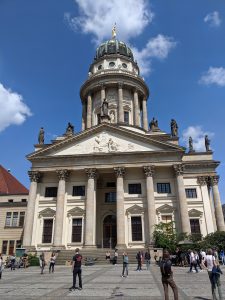 Appropriately enough and not coincidentally, one of our courses this quarter explores business ethics. While the levels of ethics are considerably different in their intensity from say intentional misrepresentation of accounting figures compared to the discriminate killings of entire people groups, the principles are still the same. And greater questions about our ethics and morals both in our public and private lives remain the same: Would I say something? Will I do something?
Appropriately enough and not coincidentally, one of our courses this quarter explores business ethics. While the levels of ethics are considerably different in their intensity from say intentional misrepresentation of accounting figures compared to the discriminate killings of entire people groups, the principles are still the same. And greater questions about our ethics and morals both in our public and private lives remain the same: Would I say something? Will I do something?
It’s easy to judge history with the advantage of our hindsight of moral authority, but in our everyday lives we have the opportunity to practice micro-bravery. Germany, in the early half of the century, didn’t go astray over a single moment or a single decision, but it was over many small decisions by many people that made the macro-difference. Jim Detert, who is one of the program’s deans and who happens to be with us on this residency, has written about workplace courage. Our everyday actions do matter and they matter sometimes in more profound ways that we may know. By drawing this parallel, again, I don’t mean to trivialize the innocent deaths of the many multitudes, yet history shows us that many small decisions over time can cultivate catastrophe. We are walking that history here.
Andy Wicks, our Ethics professor, has heard all the jokes and humor about business ethics. Isn’t business ethics an oxymoron like jumbo shrimp? Haha. However, I argue (and he would as well) that organizations, for-profit or not-for-profit, have similar desires/mandates, which is to create or foster value to the individual and their community. The perception of business as value creators can be harder since we have a profit motive. It’s easy to dismiss organization motivations as simply money or power, but I believe businesses create value, and some do so very well. I write to you from an elegant machine comprised of advanced plastics, sophisticated electronics, and intuitive software. Someone somewhere knew of my need and was able to provide value. And yes indeed somewhere someone used harsh methods to extract materials from the earth and someone somewhere probably worked in some distant land with possibly looser labor standards to bring this work of industry and art together. We are complicated creatures.
In Berlin, we see that complication. In Daimler Benz, we see a company grappling with the realities of climate change through sustainable automobiles. Or in Deutsche Bank, we see the need for a financial organization to provide capital for established and new corporations, yet must balance that with appropriate risk taking in a market-driven environment. It’s easy to judge from the outside, but it’s really hard to do from inside. Those corporations and most businesses are now more global than ever. Ethical choices are ever more complicated as businesses engage with different cultures and set-forth new ideas.
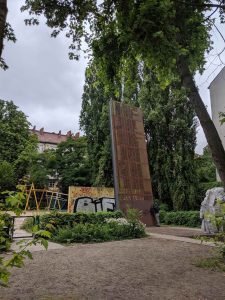 The plurality of religions, cultures, and languages are all around you. At one point, in the late 1600s, Berlin was a refuge for persecuted French Huguenots, who at that time would have seemed like they were from an entirely different world, speaking a different language and worshipping in a different way. The memorial of their church is just a few hundred feet away from our hotel. Now Berlin converges Germans, Russians, Americans, Turks, Africans, Syrians; and Christians, Jews, and Muslims, amongst many others. In essence, Berlin is a very modern, multi-cultural, and cosmopolitan city.
The plurality of religions, cultures, and languages are all around you. At one point, in the late 1600s, Berlin was a refuge for persecuted French Huguenots, who at that time would have seemed like they were from an entirely different world, speaking a different language and worshipping in a different way. The memorial of their church is just a few hundred feet away from our hotel. Now Berlin converges Germans, Russians, Americans, Turks, Africans, Syrians; and Christians, Jews, and Muslims, amongst many others. In essence, Berlin is a very modern, multi-cultural, and cosmopolitan city.
Because Berlin was once the capital of the Third Reich, the ghost of one of its leaders does seem at times to hover the city. In an exceptionally ironic and prescient speech, he stated:
Above all I want to make this city a representative of the German nation. This transcends any individual. We are all ephemeral beings. The city, however, as capital of the German [Realm], must exist and must truly exist for the future.[I]
Thankfully, the city has been made new (neue) and it transcends any individual. The Reichstag itself is dedicated to the German People (Dem Deutscher Volke). Designed by British architect Norman Foster, this German parliamentary building is modern in appearance with a glass and steel dome capping a traditional building comprised of classic Roman columns. The electronic tour handset stated the glass is there to represent democracy’s transparency. Obviously! But glass is also delicate and in times like ours democracy certainly feels fragile.
We heard from Akita Shubert on our first morning of the program and she described the challenges facing governance in both Germany and the broader European Union. At Darden, we study leadership. The first few days of this residency have really highlighted why leadership matters and that it is in high demand within and across borders. Perhaps more importantly, I’ve seen and realized how leaders in all walks of life making sound ethical choices have a real impact too.
[i] Reprinted in Schönberger, Die neue Reichskazlei von Albert Speer (Berling: Mann, 1981), 179.

